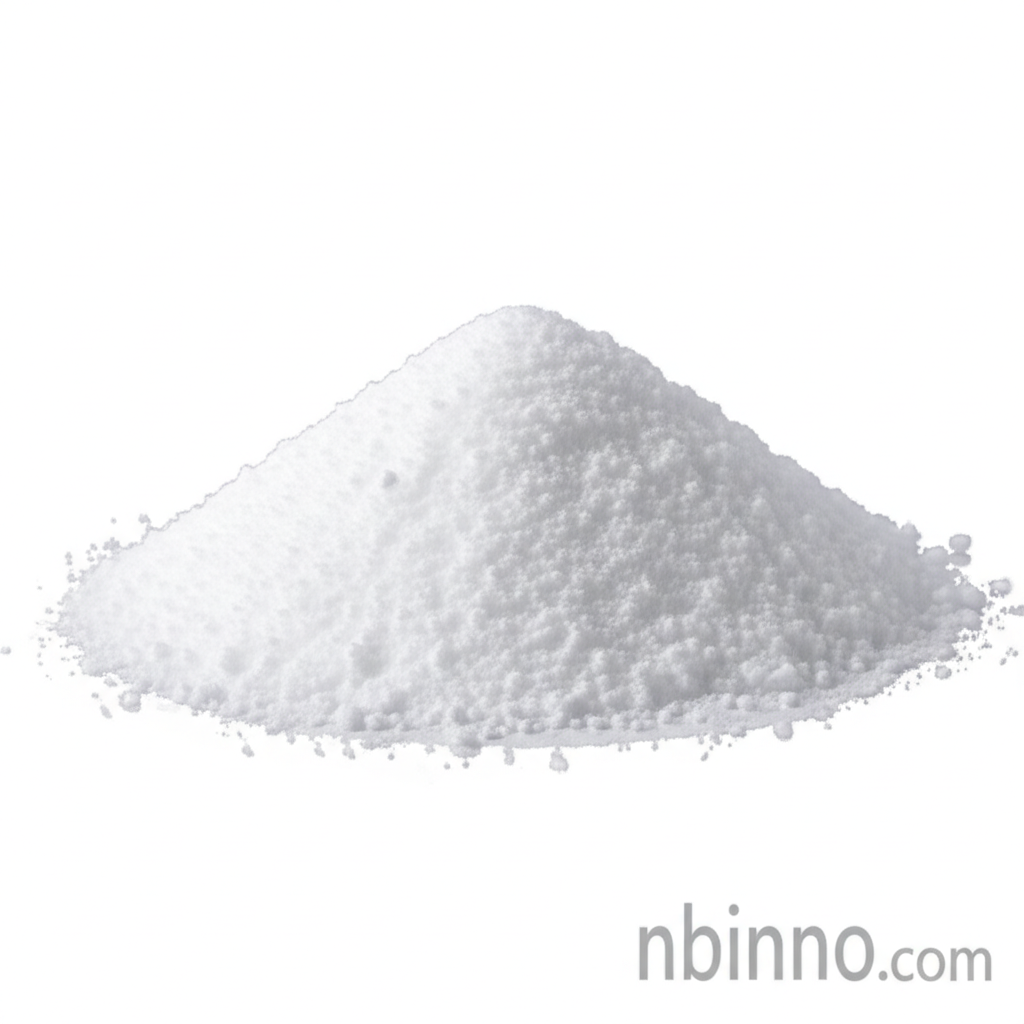Sodium Dichloroacetate: A Versatile Pharmaceutical Intermediate with Promising Therapeutic Applications
Explore the potential of Sodium Dichloroacetate (DCA) as a key pharmaceutical intermediate, particularly in innovative cancer therapies.
Get a Quote & SampleProduct Core Value

Sodium Dichloroacetate Powder
Sodium Dichloroacetate (DCA) is a synthetic chemical compound that has garnered significant attention for its multifaceted applications, particularly as a pharmaceutical intermediate. Its primary mechanism involves the inhibition of pyruvate dehydrogenase kinase, which influences cellular energy metabolism. This action can reverse the Warburg effect characteristic of many cancer cells, leading to increased apoptosis and potentially inhibiting tumor growth. Research also indicates that DCA can synergize with other therapeutic agents, enhancing their anticancer potential.
- Investigating DCA as an anticancer therapeutic highlights its role in targeting cancer cell metabolism, offering a novel approach to treatment.
- As a crucial pharmaceutical intermediate for oncology, DCA serves as a building block for developing advanced cancer therapies.
- The exploration of synergistic cancer treatments involving DCA and compounds like curcumin shows promise for improved efficacy and reduced toxicity.
- Metabolic therapies for cancer are advancing with DCA, which targets the Warburg effect, a common hallmark of malignant cells.
Key Advantages
Metabolic Regulation
DCA's ability to inhibit pyruvate dehydrogenase kinase allows for the regulation of cellular energy pathways, which is critical for understanding its DCA anticancer potential.
Synergistic Therapeutic Effects
The synergy observed when DCA is combined with agents like curcumin suggests a powerful avenue for enhancing treatment outcomes, showcasing the value of DCA synergizes with curcumin research.
Drug Repurposing Opportunities
The investigation into DCA as a candidate for drug repurposing DCA opens doors for its application in treating conditions beyond its initial industrial uses.
Key Applications
Cancer Research
DCA is a significant focus in cancer research for its potential to combat the Warburg effect and induce apoptosis in cancer cells, making it a vital compound in the study of pharmaceutical intermediates for oncology.
Metabolic Disorders
Beyond cancer, DCA is being studied for its effects on metabolic diseases, highlighting its broader role in biochemical research and treatment development.
Drug Combination Therapies
The enhanced efficacy observed when DCA is used with other compounds is a key area of research, emphasizing the importance of synergistic cancer treatments.
Industrial Chemical Processes
As a by-product of water disinfection, DCA has historical industrial relevance, but its current focus is on its advanced pharmaceutical applications.
